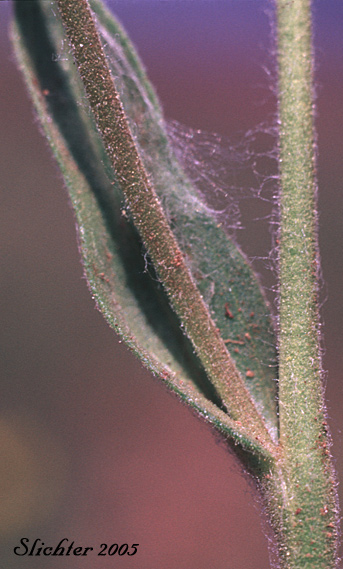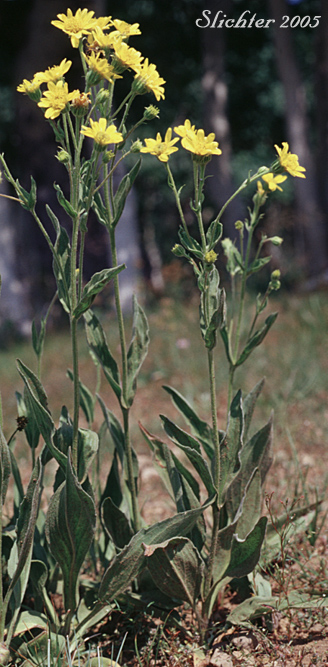
Arnica chamissonis

Chamisso arnica is a perennial wildflower with single stems arising 20-100 cm high from long, nearly naked rhizomes. The herbage of both the stems and leaves varies from spreading hairy to covered with matted to tangled, soft, wooly hairs. The 5-10 pairs of leaves are typically found on the stems. Those leaves of the lower to mid stem are the largest, but the upper leaves remain fairly large rather than being greatly reduced. The lower leaves are petiolate, while those of mid- and upper stem are sessile. Individual leaves are lanceolate to oblanceolate, or perhaps even narrowly elliptical. The blades measure 5-30 cm long and are 1-4 cm wide. The leaf margins vary from lightly toothed to entire.
The open inflorescence consists of several to up to a dozen loosely spaced flower heads, each of which is bell-shaped at the base. The involucral bracts are 8-13 mm long and obtuse to somewhat acute at the tip, bearing a tuft of long white hairs at the tip. The approximately 13 rays are pale yellow, each measuring 1.5-2 cm long. These surround a yellow cluster of disk flowers which measure 7-11 mm long.
Chamisso arnica may be found from the foothills to middle and subalpine elevations in the mountains. It is a plant of meadows and wet places, or most woodland edges.
Chamisso arnica may be found from Alaska south to California and east to the Yukon and Hudson's Bay and hence south to central Nevada, southern Utah and Eastern Arizona.




